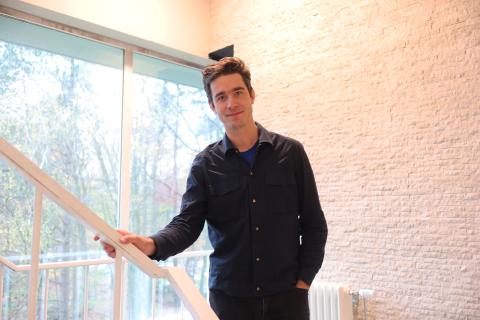ERC Starting Grant for Boris van Leeuwen
The European Research Council (ERC) of the European Commission has awarded Boris van Leeuwen, Associate Professor at the Economics Department of the Tilburg School of Economics and Management, a prestigious grant for promising researchers. This was announced by the ERC on November 22. He receives a Starting Grant to the amount of almost € 1.4 million.
Boris van Leeuwen will study the role of emotional intelligence in strategic interactions and markets. Experimental research has shown that emotions play an important role in these interactions, for instance, when people cooperate or negotiate or in market interactions. However, it is not known whether and how emotional skills – such as anticipating the emotions of others and regulating one’s own emotions – impact strategic interactions. The aim of the project is to develop new methods to measure and study emotional skills.

Van Leeuwen: "I am honored to receive this prestigious research grant, and I am really looking forward to starting this project. I am very grateful to my colleagues who have helped me apply for this grant. It is wonderful that it will enable me to work on this project in the coming years.”
The project
Emotional skills: The role of emotional intelligence in strategic interactions and markets
Emotional intelligence, like anticipating the emotions of others and regulating one’s own emotions, is thought to be a crucial skill to do well in the workplace. This may be especially true for strategic interactions relevant for the workplace such as cooperation, bargaining, and market interactions. From experimental studies, we know that emotions play an important role in these interactions. Yet, whether or how emotional skills influence strategic interactions is unknown. Economists and other scholars currently lack the tools and framework to systematically study the role of emotional skills in strategic settings. While we have a good understanding of other key elements of strategic interactions like social preferences and strategic reasoning, no such investigation exists for emotional skills. The goal of this project is to provide the foundation to jumpstart the study of emotional skills in strategic interactions and markets. Specifically, this project addresses three main objectives. First, I will develop a new emotional skills test, specifically designed to study the role of emotional skills in strategic interactions. Second, the newly developed test allows me to experimentally investigate how emotional skills shape outcomes and decisions in strategic interactions and markets. Third, I will study the supply of emotional labor – the requirement that workers have to display certain emotions on the job that may mismatch their own – which is associated with considerable psychological costs. Despite its importance for labor markets, evidence on the economics of emotional labor is lacking. I will include emotional labor in standard economic models and develop a new experimental paradigm to estimate the supply of emotional labor. This project will synthesize insights from psychology and management with methods of experimental economics and will provide the experimental tools and paradigms to study emotional intelligence in strategic interactions and markets.
